Mapping the sources and distribution of marine plastics
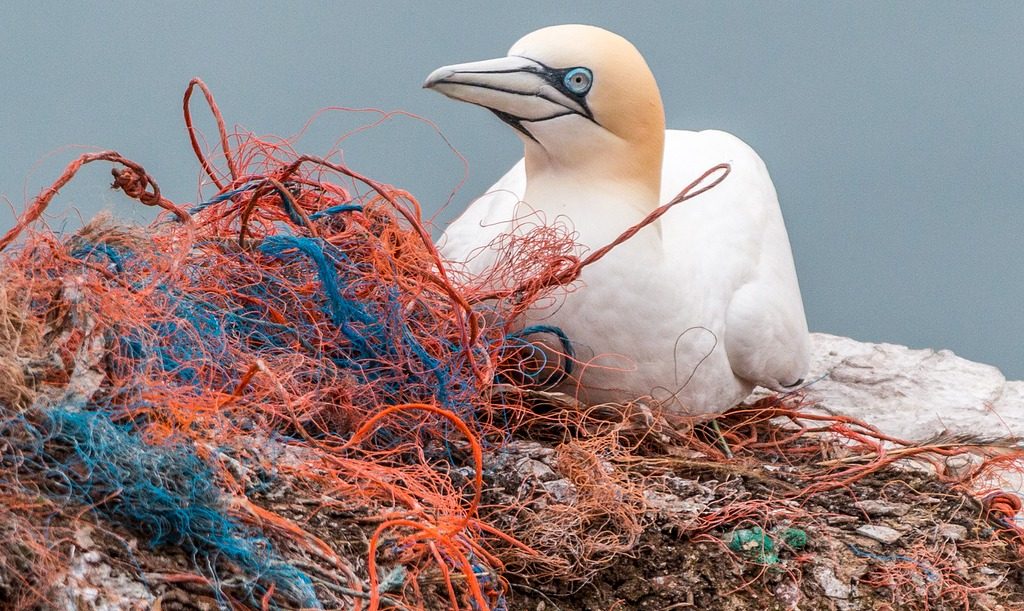 CSIRO as part of their Global Plastic Losses project has partnered with Udayana University to measure, analyse and map plastic pollution in Bali. Researchers have used a combination of field sampling and mathematical modelling and the project has provided a definitive baseline measure of Bali’s inland, coastal and marine plastic waste.
CSIRO as part of their Global Plastic Losses project has partnered with Udayana University to measure, analyse and map plastic pollution in Bali. Researchers have used a combination of field sampling and mathematical modelling and the project has provided a definitive baseline measure of Bali’s inland, coastal and marine plastic waste.
The approach has grown capacity for researchers to monitor coastal and ocean health to assess the effectiveness of interventions and allows the team to make predictions of debris in areas where surveys were not conducted.
Researchers are able to identify geographical hotspots as well as problematic items which can be targeted for interventions. These interventions are aimed at reducing consumer item plastics from entering the environment and provide marine plastic data for all of Indonesia.
Strengthening reference laboratory capability and capacity in Indonesia
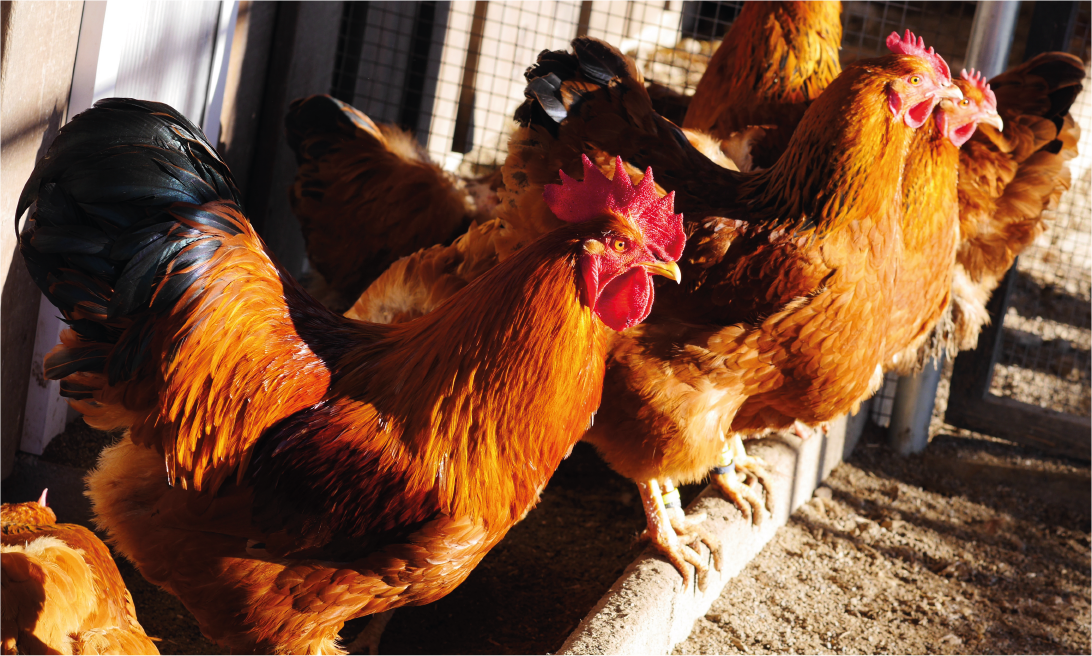 The CSIRO Australian Centre for Disease Preparedness (ACDP) is working with the Animal Disease Investigation Centre (BBVET) at Wates in Indonesia to strengthen reference laboratory capability and capacity in Indonesia.
The CSIRO Australian Centre for Disease Preparedness (ACDP) is working with the Animal Disease Investigation Centre (BBVET) at Wates in Indonesia to strengthen reference laboratory capability and capacity in Indonesia.
As a World Organisation for Animal Health (OIE) reference laboratory for HPAI and LPAI, ACDP provides ongoing assistance with control of high pathogenic avian influenza and other zoonotic and emerging diseases in our region.
In this capacity, ACDP continues to provide diagnostic support for the confirmation and characterisation of avian influenza outbreaks in poultry and wild birds, and by delivering capacity building programs and training to help countries prevent, detect and respond to disease in animals.
Understanding the characteristics of flu strains present in birds provides information for when vaccines – both human and poultry - need updating to match the circulating strains and help control disease outbreaks.
Developing agribusiness innovations for smallholder farming households
CSIRO worked with Indonesian research institutes to implement the Applied Research and Innovation
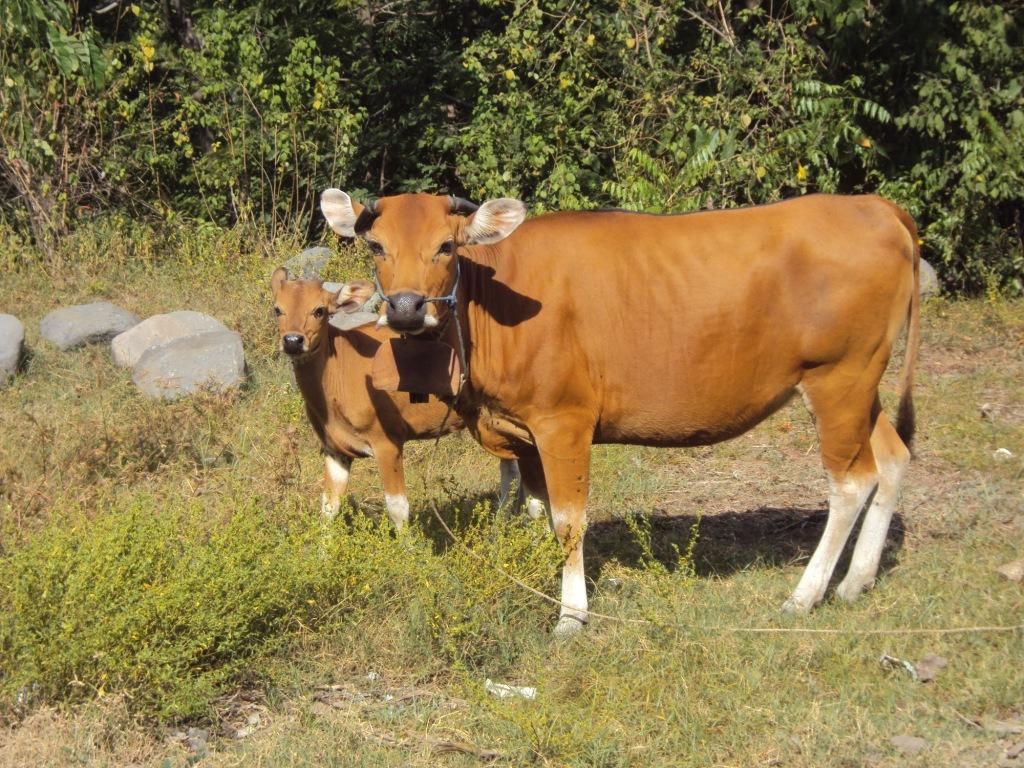
The program delivered:
- Improvement in the capacity of its research teams to initiate and manage partnerships with the private sector for agricultural innovation.
- Institutional change in two partner universities, resulting in the establishment of units to support researchers and faculties to commercialise research.
- Strengthened capacity in the Ministry of Research, Technology and Higher Education to design, implement and evaluate programs that support private sector collaboration for agricultural innovation.
Improving transport efficiency and financial management
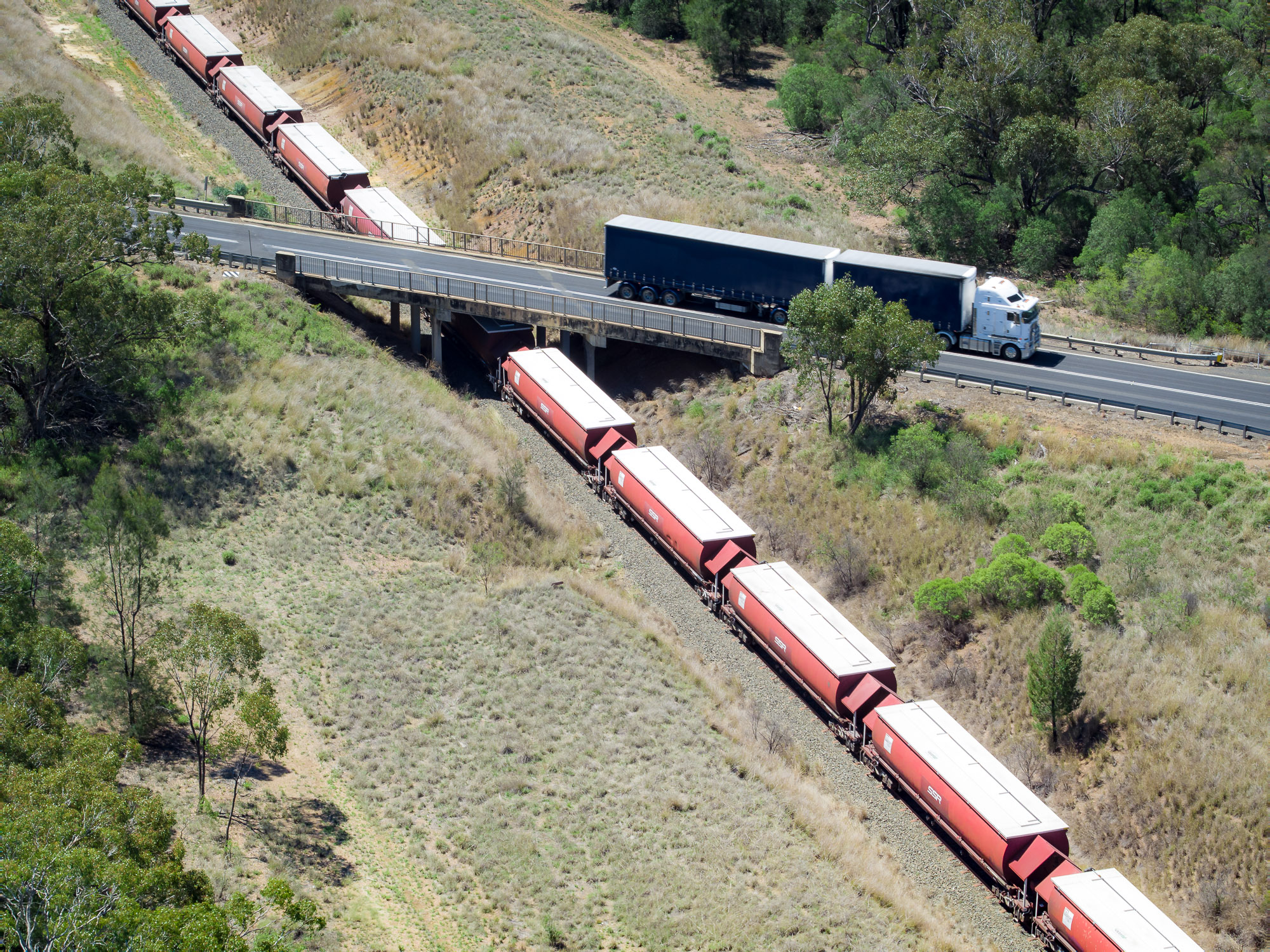 CSIRO is working to promote more efficient market chains through TraNSIT, the Transport Network Strategic Investment Tool. TraNSIT is providing Indonesian partners with an evidence base to help reduce transport and logistics costs for agriculture and other freight. It also helps to identify infrastructure investments and regulatory changes to improve transport efficiency. In Indonesia, initial case studies in cattle, rice and sugar have been undertaken using best available data on agricultural production, supply chains, transport costs and road and shipping networks.
CSIRO is working to promote more efficient market chains through TraNSIT, the Transport Network Strategic Investment Tool. TraNSIT is providing Indonesian partners with an evidence base to help reduce transport and logistics costs for agriculture and other freight. It also helps to identify infrastructure investments and regulatory changes to improve transport efficiency. In Indonesia, initial case studies in cattle, rice and sugar have been undertaken using best available data on agricultural production, supply chains, transport costs and road and shipping networks.
TraNSIT has been applied worldwide. Its applications include:
- Analysing the impact of road upgrades.
- Informing improvements to rail infrastructure including new freight hubs and integration with road transport.
- Testing the sensitivity of the road and rail network to climate or other disruptions and their impact on access to markets.
- Optimising supply chains in the private sector.
- Forecasting freight volumes, supply chain dynamics and bottlenecks under future production and climate scenarios.
- Testing regulatory changes such as driver fatigue, road and rail pricing and tolls.
- Identifying infrastructure investment options that maximise transport cost reductions.
Improving fisheries management
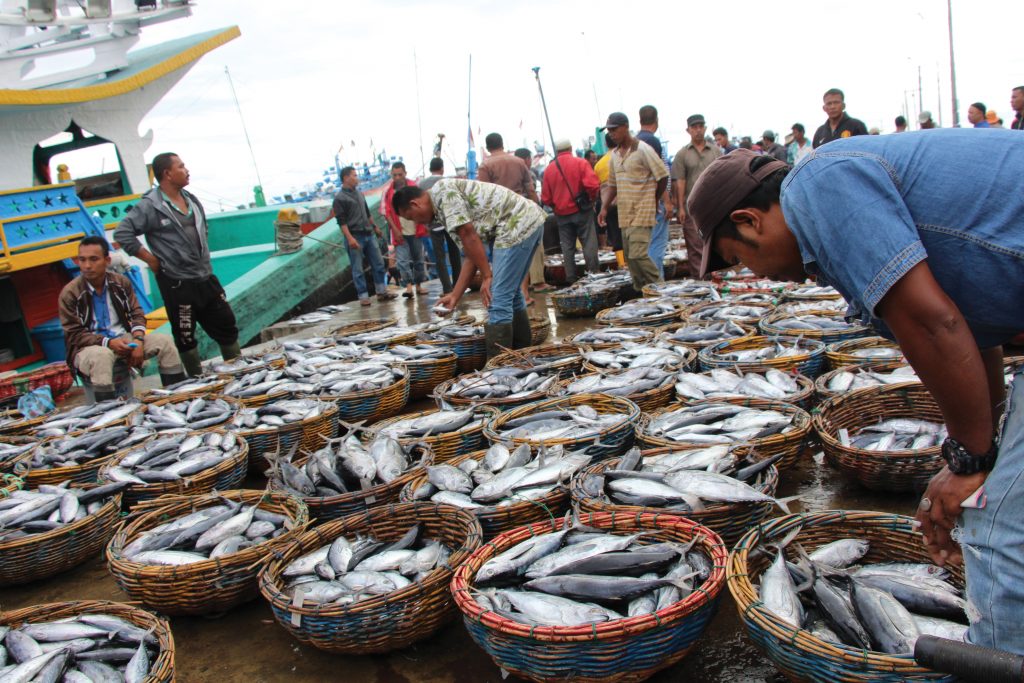 CSIRO partners with the Ministry of Marine Affairs and Fisheries to support sustainable fisheries management. As part of an ongoing collaboration, CSIRO worked with local partners to develop fishIDER, a website helps staff from fishery agencies identify fish species.
CSIRO partners with the Ministry of Marine Affairs and Fisheries to support sustainable fisheries management. As part of an ongoing collaboration, CSIRO worked with local partners to develop fishIDER, a website helps staff from fishery agencies identify fish species.
FishIDER is available in Indonesian and English and the website helps staff collect catch data about fish in fish markets and landing places in Indonesia. Approximately 60 pelagic species are listed in the fishIDER website which include tunas, mackerels, billfish and sharks and these species are among the most important food fish species groups in Indonesia.
Indonesia is one of the largest maritime nations and fish producers in the world. It is fundamental to accurately identify fish species that have been captured. The catch data collected are used to generate stock assessments. These inform important management decisions, such as catch quotas and maximum sustainable yields. The improvement in the accuracy of this data helps food security in the future.
International data specialists fellowship program
Our international data fellowship program in the Asia-Pacific will engage our expertise in data, AI and cyber to help address data related challenges unique to the region.
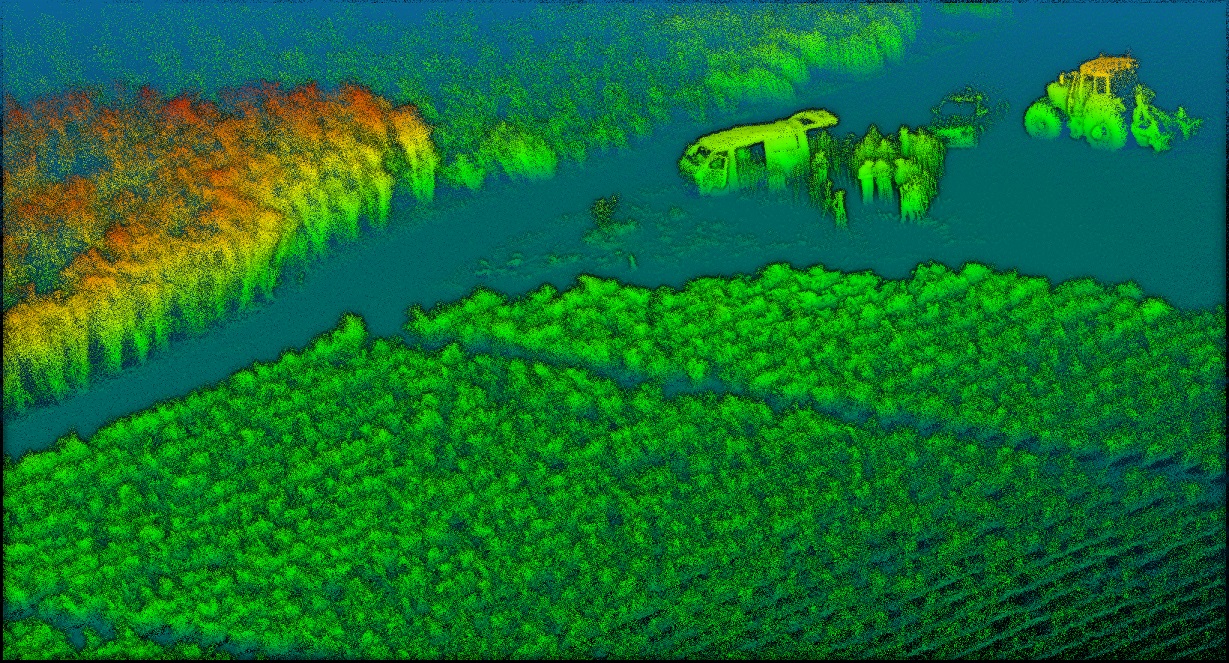
Delivered in collaboration with the Department for Foreign Affairs and Trade, our Data 4 Development (D4D) Fellowship Program, focuses on building capacity in data and design, and facilitating locally led innovation and solutions.
The program invites qualified Indonesian civil servants to undertake a three-month fellowship with our data and digital specialist arm, Data61.
Drawing on advice from our research and engineering experts, the program provides Indonesian data specialists with access to high-end professional development opportunities in Australia, as well as helps them to solve complex, high-value development and data agency related problems.
Find out more about CSIRO’s Data 4 Development Fellowship Program.
Mapping the sources and distribution of marine plastics
CSIRO as part of their Global Plastic Losses project has partnered with Udayana University to measure, analyse and map plastic pollution in Bali. Researchers have used a combination of field sampling and mathematical modelling and the project has provided a definitive baseline measure of Bali’s inland, coastal and marine plastic waste.
The approach has grown capacity for researchers to monitor coastal and ocean health to assess the effectiveness of interventions and allows the team to make predictions of debris in areas where surveys were not conducted.
Researchers are able to identify geographical hotspots as well as problematic items which can be targeted for interventions. These interventions are aimed at reducing consumer item plastics from entering the environment and provide marine plastic data for all of Indonesia.
Strengthening reference laboratory capability and capacity in Indonesia
The CSIRO Australian Centre for Disease Preparedness (ACDP) is working with the Animal Disease Investigation Centre (BBVET) at Wates in Indonesia to strengthen reference laboratory capability and capacity in Indonesia.
As a World Organisation for Animal Health (OIE) reference laboratory for HPAI and LPAI, ACDP provides ongoing assistance with control of high pathogenic avian influenza and other zoonotic and emerging diseases in our region.
In this capacity, ACDP continues to provide diagnostic support for the confirmation and characterisation of avian influenza outbreaks in poultry and wild birds, and by delivering capacity building programs and training to help countries prevent, detect and respond to disease in animals.
Understanding the characteristics of flu strains present in birds provides information for when vaccines – both human and poultry - need updating to match the circulating strains and help control disease outbreaks.
Developing agribusiness innovations for smallholder farming households
CSIRO worked with Indonesian research institutes to implement the Applied Research and Innovation
Systems in Agriculture (ARISA) program in eastern Indonesia. The program identified constraints in on-farm production and broader value chains and program leaders were able to engage commercial partners to make local agribusiness innovations applicable for smallholder farming households. As a result, over 11,000 farming households benefited from a significant income uplift, with an average increase of 117 per cent.
The program delivered:
- Improvement in the capacity of its research teams to initiate and manage partnerships with the private sector for agricultural innovation.
- Institutional change in two partner universities, resulting in the establishment of units to support researchers and faculties to commercialise research.
- Strengthened capacity in the Ministry of Research, Technology and Higher Education to design, implement and evaluate programs that support private sector collaboration for agricultural innovation.
Improving transport efficiency and financial management
CSIRO is working to promote more efficient market chains through TraNSIT, the Transport Network Strategic Investment Tool. TraNSIT is providing Indonesian partners with an evidence base to help reduce transport and logistics costs for agriculture and other freight. It also helps to identify infrastructure investments and regulatory changes to improve transport efficiency. In Indonesia, initial case studies in cattle, rice and sugar have been undertaken using best available data on agricultural production, supply chains, transport costs and road and shipping networks.
TraNSIT has been applied worldwide. Its applications include:
- Analysing the impact of road upgrades.
- Informing improvements to rail infrastructure including new freight hubs and integration with road transport.
- Testing the sensitivity of the road and rail network to climate or other disruptions and their impact on access to markets.
- Optimising supply chains in the private sector.
- Forecasting freight volumes, supply chain dynamics and bottlenecks under future production and climate scenarios.
- Testing regulatory changes such as driver fatigue, road and rail pricing and tolls.
- Identifying infrastructure investment options that maximise transport cost reductions.
Improving fisheries management
CSIRO partners with the Ministry of Marine Affairs and Fisheries to support sustainable fisheries management. As part of an ongoing collaboration, CSIRO worked with local partners to develop fishIDER, a website helps staff from fishery agencies identify fish species.
FishIDER is available in Indonesian and English and the website helps staff collect catch data about fish in fish markets and landing places in Indonesia. Approximately 60 pelagic species are listed in the fishIDER website which include tunas, mackerels, billfish and sharks and these species are among the most important food fish species groups in Indonesia.
Indonesia is one of the largest maritime nations and fish producers in the world. It is fundamental to accurately identify fish species that have been captured. The catch data collected are used to generate stock assessments. These inform important management decisions, such as catch quotas and maximum sustainable yields. The improvement in the accuracy of this data helps food security in the future.
International data specialists fellowship program
Our international data fellowship program in the Asia-Pacific will engage our expertise in data, AI and cyber to help address data related challenges unique to the region.
Delivered in collaboration with the Department for Foreign Affairs and Trade, our Data 4 Development (D4D) Fellowship Program, focuses on building capacity in data and design, and facilitating locally led innovation and solutions.
The program invites qualified Indonesian civil servants to undertake a three-month fellowship with our data and digital specialist arm, Data61.
Drawing on advice from our research and engineering experts, the program provides Indonesian data specialists with access to high-end professional development opportunities in Australia, as well as helps them to solve complex, high-value development and data agency related problems.
Find out more about CSIRO’s Data 4 Development Fellowship Program.
